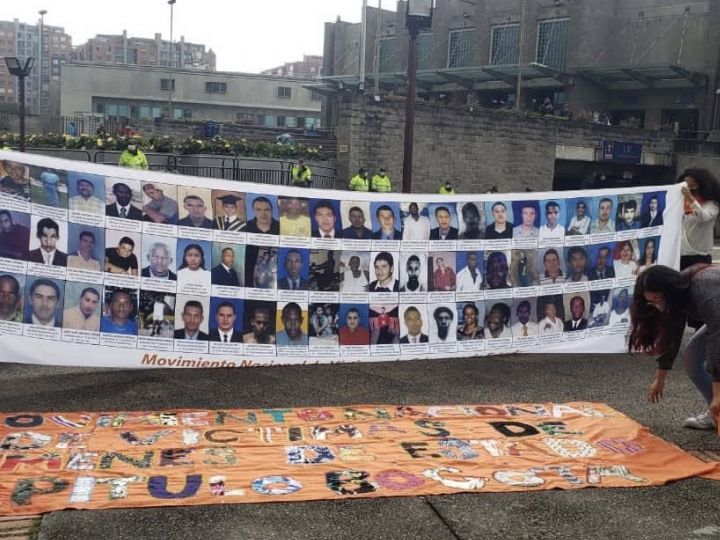Nearly 30 civil society organisations spoke to the Royal Norwegian Embassy in Bogotá about the human rights violations they were able to document during the protests which, according to figures from the Institute for Development Studies and Peace (Indepaz), had resulted in 37 murders and more than 1,200 injured people by May 6.
The current situation in Colombia, which began with civilians protesting against a proposed tax reform on April 28, is of great concern, and this was conveyed to Ambassador John Petter Opdahl. Diana Sánchez from the organisation Asociación Minga, explained how this situation started: "It is an accumulation of so much exclusion, lack of guarantees and human rights," she said, and all of this was added to the "lack of support from the government to all sectors, including the middle class". In addition, she said that these protests are a continuation of the mobilisation which went on in November 2019 and that stopped when the pandemic came. She also reaffirmed that the protests were always peaceful, while the government's response "was to point fingers and stigmatise them". She also pointed out that the response from the international community "has been very useful because the government has had to give in a little".
According to data from the Coordination Europe-USA (Coordinación Europa Estados Unidos) and several other organisations, 471 people have been registered as missing since the start of the protests on 28 April. Alberto Yepes, a member of this organisation, described the situation as "dramatic". Marina Gallego, from the Ruta Pacífica de las Mujeres, explained how the use of force has been used against women through sexual violence. In addition, she highlighted the work of the organisations doing collection of data with an ethnic and racial focus, and asked the international community to mediate for dialogue and to ensure that the government complies with human rights.
Camilo Gonzalez from Indepaz spoke about how these protests may evolve. Gonzalez acknowledged that it is possible that they could be "reactivated" in a few days, when the fruits of the dialogue that began this week are seen. "The dialogue is a government strategy to gain time and to be able to apply the policy it has already designed".
"[This situation] is an accumulation of so much exclusion, lack of guarantees and human rights". Diana Sánchez, Asociación Minga
The organisations also shared recommendations for diplomatic bodies that are guarantors of the Peace Agreement, signed in 2016, to pressure the Colombian government to respect human rights in the context of the protests. Taking into account the recommendations of civil society organisations, Dayana Blanco from Ilex Acción Jurídica asked the embassy to ask the Colombian state to reform the armed police forces, and to investigate "the persecution of defenders who are helping people to exercise their rights". Arnobi Zapata, from the National Association of Peasant Reserve Zones (ANZORC), commented that we must try to "put pressure on Colombia to ratify the arms treaty, and respect the independence of power".
Finally, on behalf of the Norwegian Human Rights Fund, Caroline Aarsaether, Country Director in Colombia, highlighted the importance of these spaces in the face of a situation that the organisation monitors very closely. "It is an opportunity to continue to put Colombia on the agenda", she said.
This space was made possible thanks to the collaboration agreement signed between the Norwegian Embassy in Colombia and the NHRF, which is supporting around 50 projects of Colombian civil society organisations working on issues of access to justice and peace, security, protection and guarantees for human rights defenders and environmental and land rights.
Photo: Archive. Credit: Movice.

